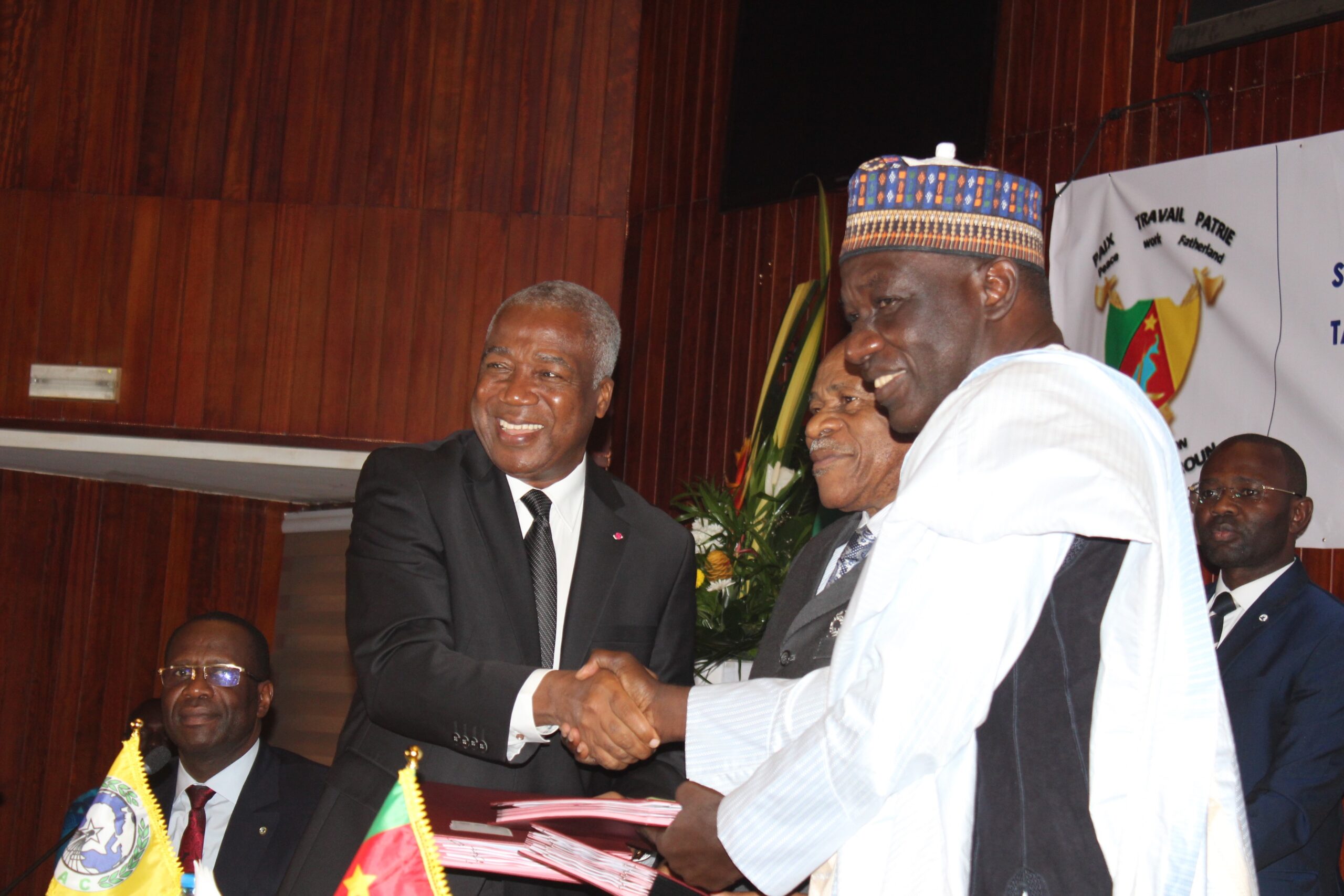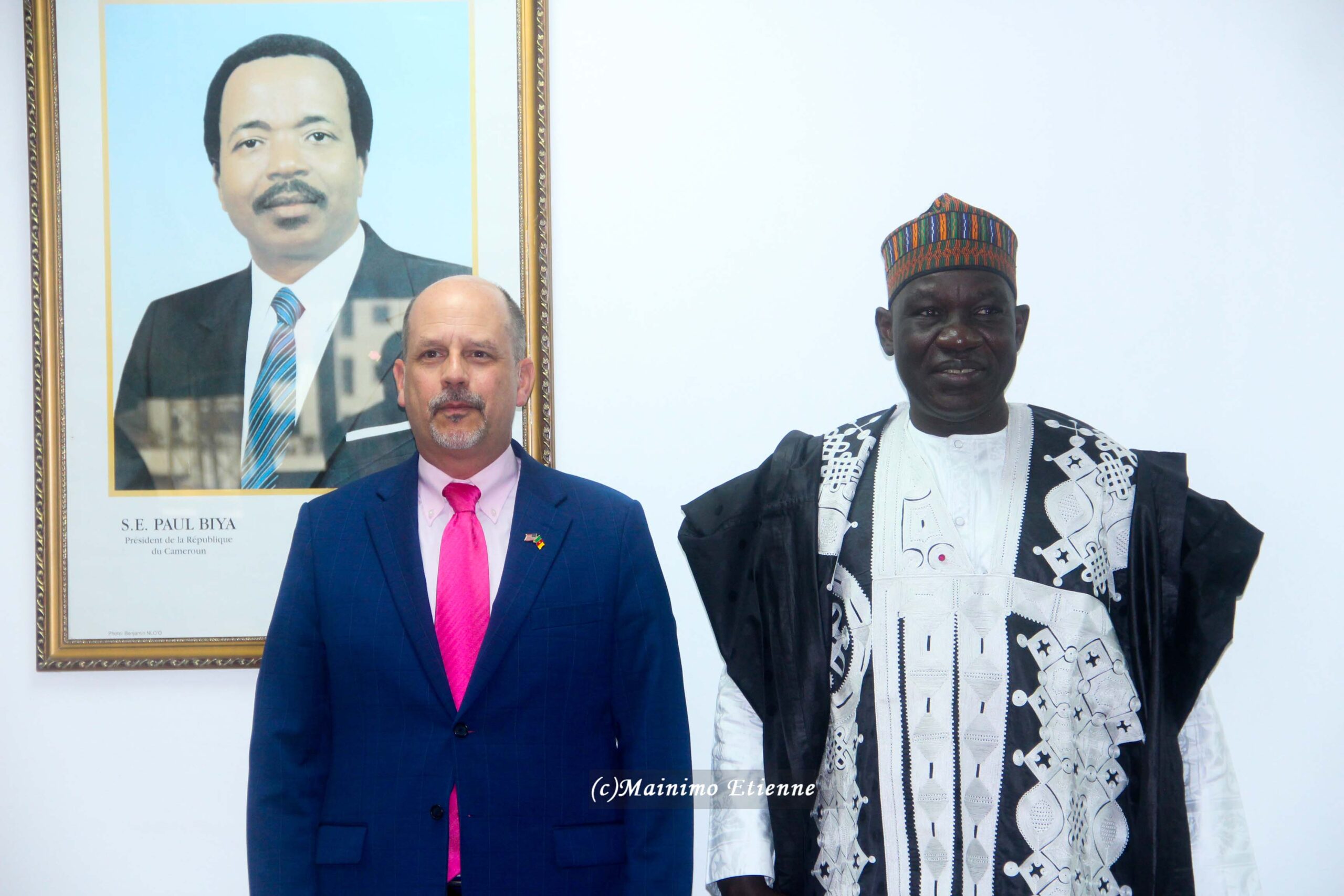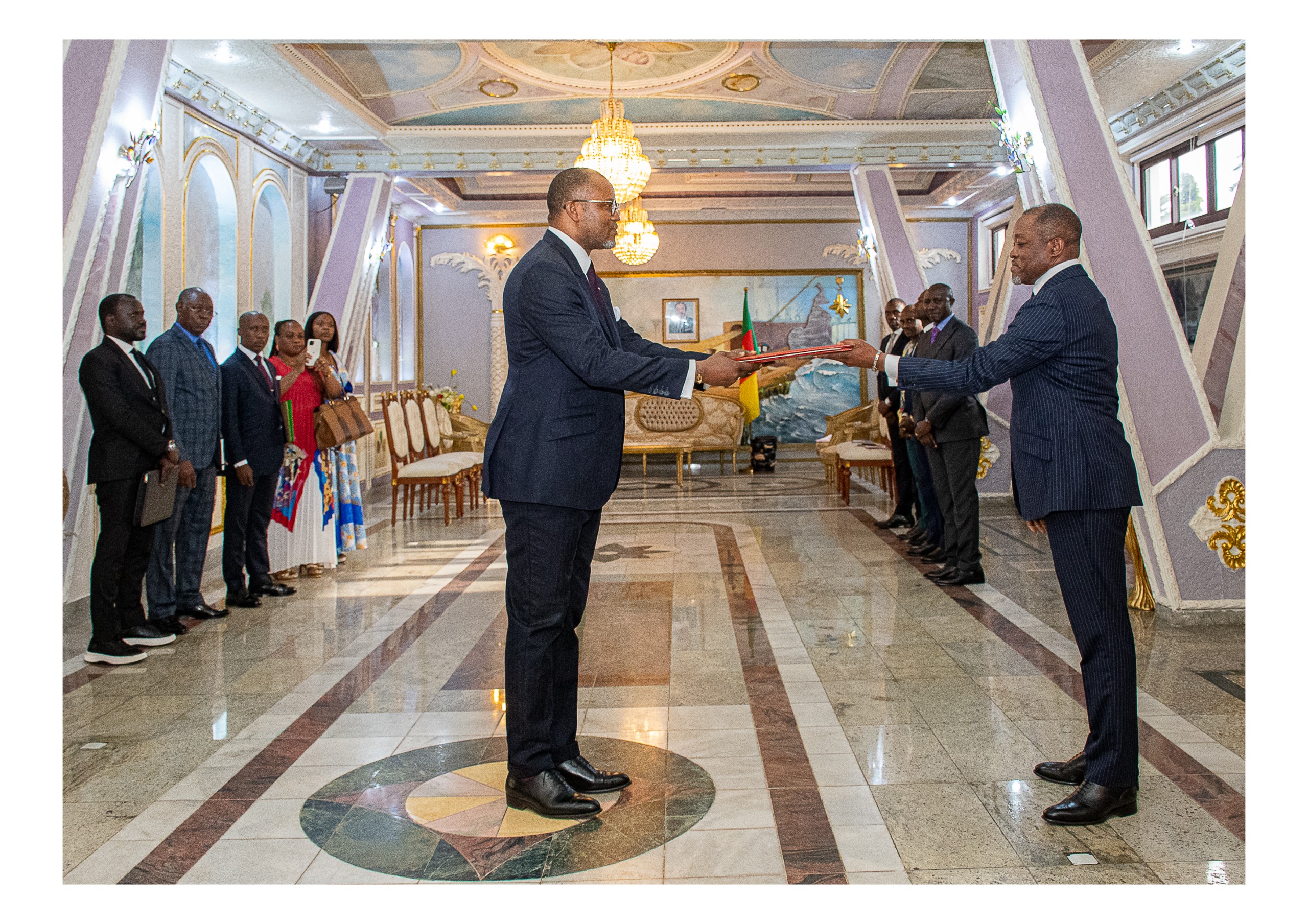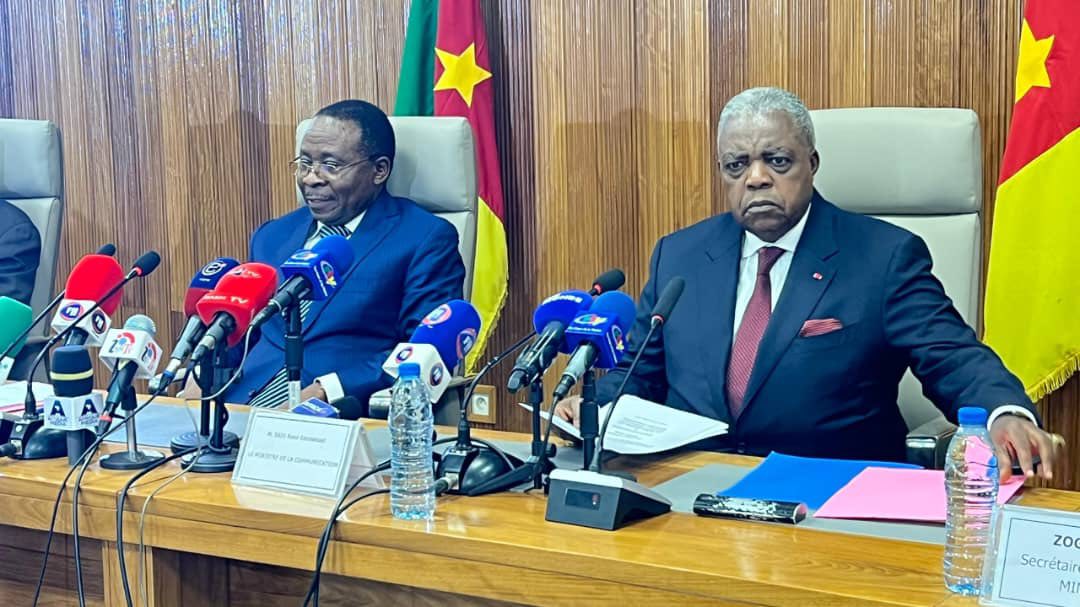By Etienne Mainimo Mengnjo & *Chimambom Rosinelarry Nayah
The government of Cameroon and the Development Bank of Central African States (BDEAC) have signed a financial agreement worth FCFA 142.5 billion for the construction of the Abong-Mbang-Lomié and Ekong-Bengbis roads. The agreement for these two major road projects in the East and South Regions of the country was signed on August 12 in Yaoundé.

According to reports, the financial agreement will facilitate the paving of the Abong-Mbang–Lomié road (122 km) and the Ekong–Bengbis road (42 km). The ceremony was attended by the President of the CEMAC Commission, Balthasar Engonga Edjo’o, as well as the Ministers of Finance and Public Works. Additional funding will also be provided by the Economic Development and Cooperation Fund (FODEC).
Speaking during the signing ceremony, Minister Ousmane Mey stated that the double signng ceremong holds significant importance. “This significant financing agreement is a testament to our government’s commitment to improving the country’s infrastructure and promoting economic development. We are grateful for the support of the BDEAC and look forward to the positive impact this project will have on our citizens’ quality of life.”
He added that these investments are part of the government’s strategy for the structural transformation of the national territory, aimed at improving access to basic social services and stimulating economic opportunities, particularly in remote areas.
“The project we are financing today is important to all of you. This is the least we can say. Obviously, this vast project comes at a time when Cameroon is accelerating its entry into the circle of exporting countries, leveraging its rich mining potential beyond current exploration,” Minister Ousmane said.
According to Minister Ousmane Mey, the construction of these infrastructures will help improve the attractiveness and availability of abundant natural resources, such as mining resources, while strengthening regional integration and transportation exchanges in the CEMAC region. He emphasized that, while improving the living conditions of local populations, the construction will also enhance accessibility and facilitate real transformation, including plans to build schools for children’s education.
Evou Mekou remarked that the project will not only improve the living conditions of the population but will also bring about the transformation needed in the subregion and across the African continent.
Meanwhile, the authorities have expressed their commitment to ensuring the speedy and high-quality execution of the work so that the expected economic benefits—such as job creation, stimulation of local trade, and improved trade fluidity—will reach the population in the shortest possible time.
The total cost of the work is estimated at 142.5 billion CFA francs, including 99.85 billion CFA francs provided by the BDEAC and 42.7 billion CFA francs from the Cameroonian government. In addition to road surfacing, the project includes the construction of social infrastructure such as health centers, schools, and boreholes, as part of the PADI-DJA Project.
The funding will also cover the completion of studies for paving the Lomié–Mintom and Messamena–Somalomo–Bengbis roads. These developments will improve connectivity with the Central African Republic and Congo via the Sangmélima–Ouesso and Abong-Mbang–Garoua-Boulai corridors, thus contributing to strengthened integration in Central Africa.
(*UB journalism Student on Internship at The Post)


